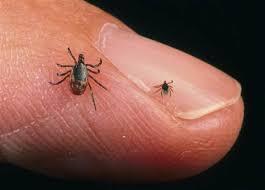Watch Out: A Rare But Serious Tick Threat Hits the Northeast
Watch Out: A Rare But Serious Tick Threat Hits the Northeast By Horizon Pest Control As tick season heats up here in New Jersey, a
 Ticks thrive in New Jersey and all over the eastern seaboard. Ticks are parasites, classified by experts as external parasites, AKA ectoparasites, that have to feed on the blood of hosts to survive. There are many different kinds of ticks, and they can be found all over the world, but they tend to be more active in warm, humid climates because they require moisture in the air to survive – like New Jersey.
Ticks thrive in New Jersey and all over the eastern seaboard. Ticks are parasites, classified by experts as external parasites, AKA ectoparasites, that have to feed on the blood of hosts to survive. There are many different kinds of ticks, and they can be found all over the world, but they tend to be more active in warm, humid climates because they require moisture in the air to survive – like New Jersey.
Ticks are widely known for being disease carriers, and the list of diseases they can pass on to humans is a long one. The most common diseases transmitted are Lyme disease, and Rocky Mountain Spotted Fever, but they can also transmit Colorado Tick Fever, Q Fever, and they can also cause a delayed allergic reaction to eating red meat. For these reasons, people everywhere need to be vigilant to protect yourself and pets.
They are very small, almost impossible to see with the naked eye, and travel around by attaching themselves to tall blades of grass, or long branches and wait for someone to brush up against them. They will then ride on the host until they are ready to bite.
If you or your pets have been bitten by a tick, they will have a telltale bullseye pattern around the affected area. You should seek medical assistance as soon as possible, and a health care professional will not only remove the tick but will also prescribe medication to deal with any symptoms that may arise. If you think your home is being infested by ticks, call Horizon Pest Control today or visit NJ Pest Control to schedule a home inspection.
Watch Out: A Rare But Serious Tick Threat Hits the Northeast By Horizon Pest Control As tick season heats up here in New Jersey, a
How Should You Safely Remove a Tick—and What Should You Avoid? By Horizon Pest Control Ticks thrive in warm, humid weather and start appearing in
Where Do Ticks Come From and Where Do They Live? By Horizon Pest Control Understanding Tick Origins Ticks are parasitic arachnids that rely on blood